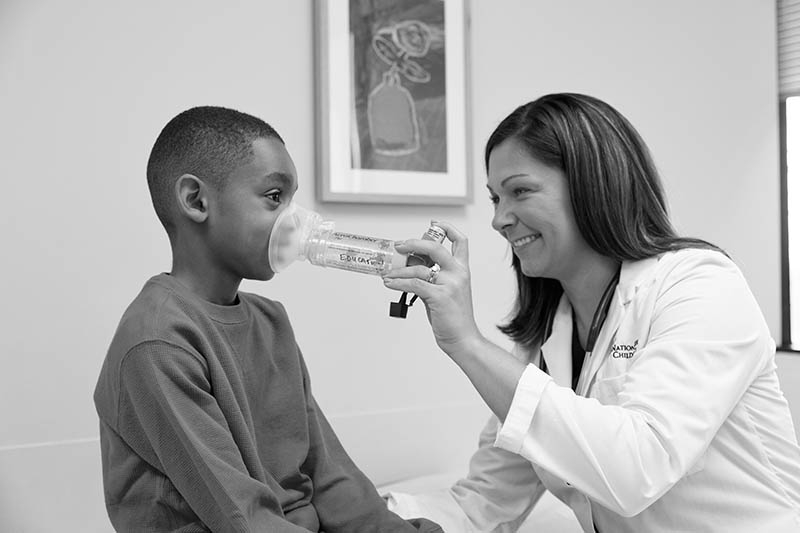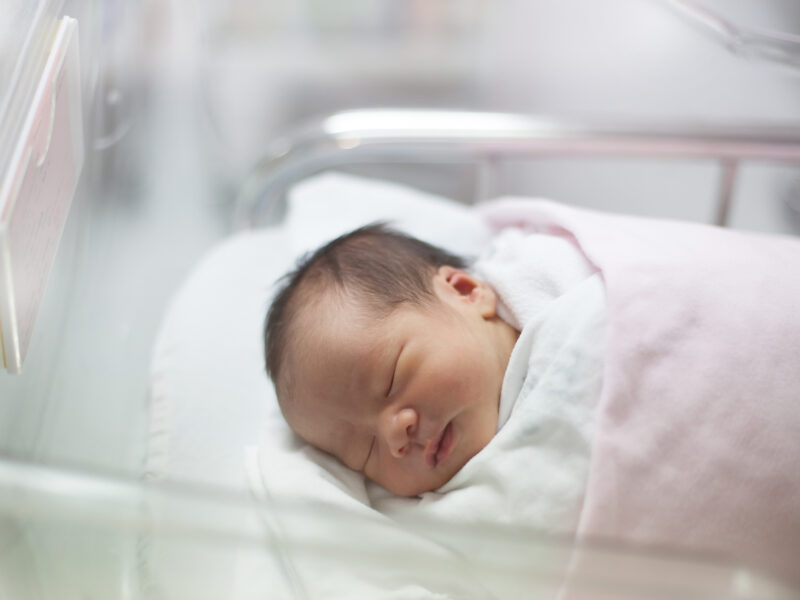Link Found Between Respiratory Syncytial Virus Infection and Asthma
Link Found Between Respiratory Syncytial Virus Infection and Asthma https://pediatricsnationwide.org/wp-content/uploads/2020/01/101416BS0074-1.jpg 800 533 Mary Bates, PhD Mary Bates, PhD https://secure.gravatar.com/avatar/c6233ca2b7754ab7c4c820e14eb518c8?s=96&d=mm&r=g- January 07, 2020
- Mary Bates, PhD

RSV infection early in life increases risk of subsequent wheezing or asthma.
Respiratory syncytial virus (RSV) is the leading cause of hospitalization in infants all over the world. It can lead to serious acute infections, and new research from Nationwide Children’s shows RSV infection can also have long-term health consequences.
In a new study, researchers investigated the association between RSV infection in the first year of life and subsequent wheezing or asthma in previously healthy full-term infants. Studies on premature infants or infants with other risk factors have found a link between RSV infection during early childhood and later development of wheezing or asthma, but whether this was also the case in full-term infants has not been well characterized.
Using data from over 16 years from three large health care claims databases across the United States, the researchers showed that full-term infants with severe RSV infection during the first year of life are at significant risk of developing wheezing or asthma during childhood. Infants hospitalized with RSV infection had both a shorter time to the first wheezing or asthma episode and a substantially higher incidence of recurrent wheezing or asthma during their first five years of life, compared with infants who did not have an RSV infection. To date, this is one of the largest studied conducted that confirm the association between early RSV infection and asthma.
For Asuncion Mejias, MD, PhD, a principal investigator in the Center for Vaccines and Immunity at the Abigail Wexner Research Institute at Nationwide Children’s and the study’s lead author, the results emphasize the huge burden of RSV.
“The problem with RSV is that it is associated not only with significant morbidity during the acute infection but also with long-term respiratory morbidity such as wheezing or asthma later on, after a severe infection needing hospitalization in the first year of life” she says.
Dr. Mejias, who is also an associate professor of pediatrics at The Ohio State University College of Medicine, and her colleagues say RSV prevention or early treatment may improve the outcomes in babies with RSV infection and help reduce the burden of chronic pulmonary complications associated with this respiratory virus. While there are currently no medications to treat acute RSV infection, the researchers are hopeful about several antivirals as well as vaccines in development.
“RSV is not a minor cold,” says Octavio Ramilo, MD, coauthor of the study and principal investigator in the Center for Vaccines and Immunity at the Abigail Wexner Research Institute. “It is a serious acute infection, and it doesn’t stop there. It is clearly associated with long-term health consequences.”
Reference:
Mejias A, Wu B, Tandon N, Chow W, Varma R, Franco E, and Ramilo O. Risk of childhood wheeze and asthma after respiratory syncytial virus infection in full-term infants. Pediatric Allergy and Immunology. 2019 Sep 30. [Epub ahead of print] doi: 10.1111/pai.13131.
Image credit: Nationwide Children’s
About the author
Mary a freelance science writer and blogger based in Boston. Her favorite topics include biology, psychology, neuroscience, ecology, and animal behavior. She has a BA in Biology-Psychology with a minor in English from Skidmore College in Saratoga Springs, NY, and a PhD from Brown University, where she researched bat echolocation and bullfrog chorusing.
-
Mary Bates, PhDhttps://pediatricsnationwide.org/author/mary-bates-phd/December 27, 2016
-
Mary Bates, PhDhttps://pediatricsnationwide.org/author/mary-bates-phd/
-
Mary Bates, PhDhttps://pediatricsnationwide.org/author/mary-bates-phd/
-
Mary Bates, PhDhttps://pediatricsnationwide.org/author/mary-bates-phd/
- Posted In:
- In Brief






